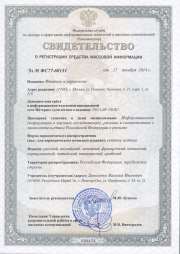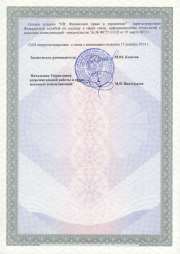MAIN PAGE
> Back to contents
Finance and Management
Reference:
Kolesnikova A.V.
"The impact of the problems of the colonial past on the modern trade disputes of the Republic of Korea and Japan"
// Finance and Management.
2022. № 4.
P. 42-49.
DOI: 10.25136/2409-7802.2022.4.37187 EDN: IXACRP URL: https://en.nbpublish.com/library_read_article.php?id=37187
"The impact of the problems of the colonial past on the modern trade disputes of the Republic of Korea and Japan"
Kolesnikova Alexandra Valer'evna
ORCID: 0000-0003-1157-8150
postgraduate student, Moscow State University, Institute of Asian and African Studies, Department of Economics and Economic Geography of Asian and African Countries
125009, Russia, Moscow, Mokhovaya str., 11 p.1

|
alexakolesnikova@mail.ru
|
|
 |
|
DOI: 10.25136/2409-7802.2022.4.37187
EDN: IXACRP
Received:
23-12-2021
Published:
30-12-2022
Abstract:
The subject of the study is the trade conflict between the Republic of Korea and Japan, affecting the architecture of global flows of high-tech components and affecting the development of the global electronics market against the background of the Covid-19 pandemic. In order to trace the unbreakable thread linking the two epochs, the author characterizes, analyzes and, where relevant, gives a forecast regarding the development of modern trade The conflict between Japan and the Republic of Korea, which is a direct consequence of unresolved disputes of the colonial era. What began as a simple continuation of a long-standing dispute over the controversial history of bilateral relations between Japan and Korea has turned into a quasi-conflict with far-reaching consequences for the architecture of economic stability and regional security in the Pacific region. The novelty of the work lies in a deep analysis of the causes of the modern conflict, the proposal of ways to solve it and forecast the development of the situation. According to the results of the study, the author came to the conclusion that due to the trade dispute, both countries faced an economic recession and a drop in trade indices, the global electronics supply chain was disrupted, and the world community expressed concerns about the threats that the trade dispute poses to global flows of high-tech components. Obviously, the scenario of escalation of the trade dispute is associated with long-term costs. Given the escalating global economic crisis, it is in the interests of both countries to come to an agreement that would put an end to the dispute.
Keywords:
colonization of Korean penincula, trade dispute, economy of Asia-Pasific region, import dependence, economy of Republic of Korea, international economic relationship, North-East Asia region, industrial economy, Covid-19, economic crisis
This article is automatically translated.
You can find original text of the article here.
The essence of the conflictFor more than a year, relations between Japan and South Korea have been in a state of free fall. What began as a simple continuation of a long-standing dispute over the controversial history of the region has turned into a quasi-conflict with far-reaching consequences for the architecture of economic stability and regional security in the Pacific region. The essence of this dispute is centered around the consequences of the Japanese colonization of Korea from 1910 to the end of World War II in 1945. The list of crimes Japan is accused of is impressive: forced labor, exploitation of women and mass murder. According to Korean estimates, during World War II, Imperial Japan mobilized 7.8 million Koreans for forced labor, including military service and sexual slavery [1]. When the two countries finally normalized relations in 1965, Japan offered more than $500 million in economic aid instead of reparations, and in return, Korea agreed to settle all wartime claims against Japan “completely and definitively.” The Supreme Court of South Korea ruled that Nippon Steel and Mitsubishi Heavy Industries, two corporations that exploited Korean labor during the Japanese colonization of Korea (1910-1945), must pay reparations to their victims [2]. Japan claims that all claims arising during this period, including individual claims, were settled by the 1965 Treaty on Basic Relations between Japan and the Republic of Korea. This normalization treaty established diplomatic relations between the two hostile countries in exchange for $300 million in grants and $200 million in loans from Japan to Korea. Article II provides that as a result “a problem concerning property, rights, interests... and the claims between [the Republic of Korea and Japan] and their citizens are [settled] completely and definitively.”[3] Despite this, the issue of history has remained an open wound in bilateral relations. In 2018, the Supreme Court of South Korea ruled that two Japanese companies are obliged to pay compensation to Koreans who were forced to work for these companies during World War II. Mutual accusations only intensified after Japan accused Korea of violating the 1965 Treaty by resuming claims for compensation. The situation deteriorated sharply when Japan announced restrictions on high-tech exports of certain chemicals and products used in the production of smartphones and semiconductors. Japan explained its decision by saying that Seoul's export control measures could not prevent these sensitive technologies from falling into the hands of countries such as North Korea, Syria and Iran. The ban was a heavy blow to the economy of South Korea, as Korean companies such as Samsung and SK Hynix dominate the global semiconductor markets[4]. Japan has also excluded Korea from its “White List” of preferred trading partners who benefit from accelerated export control procedures. While Japan argued that its decision was a purely technocratic law enforcement issue, Seoul viewed it as retaliation for the Korean Supreme Court's decision on reparations in 2018. Korea responded by completely excluding Japan from its own White List. South Korea then filed a complaint with the World Trade Organization (WTO) about Japanese export controls. In addition, after the pandemic, Japan's adoption of a temporary 14-day self-quarantine period for people flying from South Korea and China, as well as the suspension of the visa-free entry program, prompted Seoul to suspend its own visa-free entry program[5]. Economic consequences of the trade disputeIf we talk about the global consequences of the trade war, then, firstly, the volume of bureaucratic work has increased and delays in the delivery of materials have increased. Companies that import and export goods between the two countries have started experiencing difficulties. The term of customs procedures has artificially increased due to the introduction of licenses for goods.
Currently, strategic materials are imported only with individual licenses or under limited special export licenses through ICP companies after Korea was excluded from the "white list". Both hydrogen fluoride and fluorine polyimide are insensitive strategic materials. Currently, imports of non-sensitive strategic goods account for about 36% of world imports and 47% of imports from Japan[6]. Another problem is the disruption of the supply chain. Several experts expressed concern about the threats that the trade dispute poses to global flows of high-tech components. According to Rajiv Biswas, chief Asia-Pacific economist at IHS Markit, Japanese export controls will remain in place for a long period, and this “could disrupt the global electronics supply chain” given South Korea's dominance in the microchip market and the price of memory components “could rise significantly due to the inability of other suppliers to meet global demand.".”[7] There is also a risk of escalation of the trade conflict between the two countries. In general, statistics showed that Japan's bilateral trade with South Korea decreased by 41%, with both exports and imports declining [8]. Based on the data on the export-import turnover (according to the IMF), South Korea's imports (from Japan) decreased from $54,559 million (2018) to $47,937 million (2019) [9]. As for exports (from Japan), these figures range from $39,595 million (2018) to $28,242 million (2019). The domestic attitude towards Japanese products has definitely affected imports, but so far the gap in exports is not too large. However, if an escalation cycle occurs between the two sides, it will unsettle both economies with side effects at a time when the global economy is already entering a recession phase due to COVID-19. Both countries face precarious growth prospects. For example, DHL's Global Trade Barometer reported that over the past three years, Japan's expected trade development index has decreased by five points to 48, and South Korea's index has decreased by 2 points to 43. This is the first time in more than three years that the DHL forecast for each country has fallen below 50, indicating a slowdown in economic growth [10]. Finally, there is the possibility of a mutual boycott of goods and services. This dispute led to the fact that the population of both countries boycotted each other's products. So, the boycott of Japanese goods intensified in July. Sales of Japanese cars in South Korea fell by 32 percent in July 2019, reducing market share by 6%. Beer sales fell by almost 97%, and retail companies such as Uniqlo stores in South Korea suffered from low sales figures. The number of Koreans visiting Japan also fell by 7.6 percent in July 2019 [11]. As for the impact of the trade dispute on the state of the South Korean economy, the consequences are also very ambiguous. Thus, the dependence on Japanese imports relative to photoresist and hydrogen fluoride decreased by 6% and 33% percent, and there was also a diversification of imports towards Belgium and Taiwan, respectively. In the case of fluorine polyimide, dependence on Japan still remained at more than 90% even after the introduction of export restrictions. However, contrary to initial fears, the Japanese export policy has become a positive opportunity for the Korean auxiliary industry to break away from the import structure dependent on Japan and gradually achieve localization. If Japan imposes additional export restrictions, concerns about export restrictions on "insensitive strategic goods" with a relatively greater import dependence on Japan are expected to increase. Insensitive strategic materials consist of a total of 1932 HS codes, of which materials worth more than $ 1 million per year are imported from Japan, and import dependence is more than 70%. These products are mainly used for the production of semiconductor equipment and flat panel displays. Import dependence also affects the supply of materials, such as production equipment, fine chemical raw materials and plastic products, and still reaches 80-90%, so efforts to proactively localize and diversify imports are urgent [12]. The impact of the COVID-19 pandemic on Japan and South Korea
The COVID-19 pandemic has had a serious impact on the economies of both countries. Japan's economy has already entered a recession phase. In the period from January to March, GDP decreased by 3.4%. During the first quarter, all major indicators, including consumer spending, exports and production, entered a low phase. In the second quarter, the country may record a reduction of more than 20%. According to forecasts, if the pandemic continues to intensify in the second half of the year, the Japanese economy could contract by 4.6% in 2020 before recovering slightly and growing by 2.8% in 2021. As a result of the pandemic, both domestic and external demand has decreased. Japan is struggling to move away from the crisis line and develop growth strategies. Although the country has not yet recorded a high unemployment rate, reports claim that the official figures do not reflect the huge number of people who are still officially employed, but do not receive a salary for their work. Taking into account 4 million people on vacation, the unemployment rate may reach 11.5% (in April it was only 2.6%) [13]. Reports show that South Korea's economy shrank by 1.4% in the first quarter, the biggest drop since the 2008 financial crisis. During this period, exports decreased by 24.3%. As markets in the US, Europe and Japan have shrunk, chip exports, South Korea's biggest source of revenue, are attracting less demand. Economist Robert Carnell predicted a weak second quarter for the South Korean economy due to COVID-19 and the global recession. According to reports, the unemployment rate rose to 4.5% in May compared to 3.8% in April – the highest since 2010 [14]. After a series of failed negotiations between the trade ministries of both countries earlier this year, and now that South Korea has announced the resumption of its complaint to the WTO, the trade dispute between Japan and South Korea seems endless. As the world enters a phase of economic recession, a trade dispute like this will add to the problems given the various economic setbacks that countries are suffering from right now. Apart from the fact that bilateral ties are weak, it also threatens to affect the trajectory of the region's security. In the past, we have seen how this bilateral trade dispute has been able to jeopardize the GSOMIA intelligence sharing agreement, putting the trilateral alliance of the US, South Korea and Japan in an uncertain position. Obviously, the scenario of escalation of the trade dispute is associated with long-term costs. Given the escalating global economic crisis, it is in the interests of both countries to come to an agreement that would put an end to the dispute.
References
1. Son Kujin. Japanese imperialistic legacy revised through statistics. 2018. 502 p. ISBN 978-89-7641-979-8 93910
2. Agreement on the settlement of problems concerning property and claims and on economic co-operation (with Protocols, exchanges of notes and agreed minutes).//glaw.scourt.go.kr// Official website of Supreme Court of Republic of Korea// 30.10.2018// URL: https://glaw.scourt.go.kr (11.01.2022)
3. Parsing the Economic Damage From the Japan-South Korea Dispute //https://thediplomat.com// The diplomat// 24.01.2020 //URL:https://thediplomat.com/2020/01/parsing-the-economic-damage-from-the-japan-south-korea-dispute/ (30.12.2021)
4. Trade Focus. 2020.40 p. ISSN 2093-3118
5. DRAM chip market share by manufacturer worldwide from 2011 to 2020 // www. statista.com// Statista // 12.05.20211 // URL: https://www.statista.com/statistics/271726/global-market-share-held-by-dram-chip-vendors-since-2010/ (01.01.2022)
6. Japan to strike South Korea off trusted export list as rift deepens // www.bbc.com // BBC // 02.08.2019 // URL: https://www.bbc.com/news/business-49201707 (11.01.2022)
7. South Korea to Reopen WTO Complaint Over Japan Trade Curbs //https://thediplomat.com // The diplomat // 03.06.2020 // URL: https://thediplomat.com/2020/06/south-korea-to-reopen-wto-complaint-over-japan-trade-curbs/ (11.01.2022)
8. Pochemu Yaponiya i Yuzhnaya Koreya razvernuli "koronavizovuyu voinu” //https://rg.ru// Rossiiskaya Gazeta // 06.03.2020// https://rg.ru/2020/03/06/pochemu-iaponiia-i-iuzhnaia-koreia-razvernuli-koronavizovuiu-vojnu.html (11.01.2022)
9. How Japan's trade row with South Korea could hit tech supplies// www.bbc.com// BBC // 23.07.2019 // URL: https://www.bbc.com/news/business-49041285 (11.01.2022)
10. Direction of Trade Statistics (DOTS) // www.data.inf.org// International Monetary Fund // 23.12.2021 // URL: https://data.imf.org/?sk=9D6028D4-F14A-464C-A2F2-59B2CD424B85&sId=1409151240976 (11.01.2022)
11. Timeline: how the Japan - Korea trade dispute escalated // https://lot.dhl.com// DHL // 15.12.2019 // URL: https://lot.dhl.com/timeline-how-the-japan-south-korea-trade-dispute-escalated/ (11.01.2022)
12. South Korean GDP shrinks 1.4% in first quarter, most since 2008 //https://asia.nikkei.com// Nikkei Asia// 23.04.2020 // https://asia.nikkei.com/URL: Economy/South-Korean-GDP-shrinks-1.4-in-first-quarter-most-since-2008 (11.01.2022)
13. Japan’s Economy Officially Enters Recession for First Time Since 2015// www.thediplomat.com// The diplomat// 18.05.2020// URL: https://thediplomat.com/2020/05/japans-economy-officially-enters-recession-for-first-time-since-2015/ (11.01.2022)
14. South Korea’s Economy Shrinks the Most Since 2008// www.bloomberg.com// Bloomberg // 23.04.2020 // URL: https://www.bloomberg.com/news/articles/2020-04-22/south-korea-s-economy-shrinks-most-since-2008-amid-pandemic (11.01.2022)
Peer Review
Peer reviewers' evaluations remain confidential and are not disclosed to the public. Only external reviews, authorized for publication by the article's author(s), are made public. Typically, these final reviews are conducted after the manuscript's revision. Adhering to our double-blind review policy, the reviewer's identity is kept confidential.
The list of publisher reviewers can be found here.
Against the background of the continuation of the global economic recession and the coronavirus pandemic, economic contradictions between countries are escalating, and competition for sales markets is growing. For these purposes, a fairly wide arsenal of reasons and means is used, and in this regard, the actualization of trade disputes between the Republic of Korea and Japan is very indicative. The article is devoted to the formal prerequisites for the emergence of such a dispute, the means of competition between the two countries and the methods of countering and protecting the own economies of South Korea and Japan. As a research method, a historical approach is used to analyze the origins of disagreements between the two countries, and the tools that South Korea and Japan use to achieve their own goals are also analyzed. At the same time, in our opinion, the author has not paid enough attention to the real economic origins of trade disputes, since it can be assumed that the colonial past is only an excuse to solve a wider range of problems and contradictions accumulated between the two countries. The relevance of the topic goes beyond the relations between the two countries, as they demonstrate the set of methods and tools by which similar situations can escalate and deepen in other regions of the world. An appeal to historical grievances, allegedly unresolved to this day, can become a very widely used reason by which countries can begin to solve their internal economic problems. It is obvious that the Russian Federation is not free from such claims from neighboring countries, and it is necessary to prepare for a response to them. The scientific novelty of the article consists in a detailed analysis of the trade dispute between South Korea and Japan, an analysis of their decisions that can be qualified as trade wars, as well as the impact of these decisions on the macroeconomic dynamics of both countries. The advantage of the article is the clarity of the presentation of the material, its structure and consistency of presentation. The article is interesting to read even for a layman, all the details and circumstances of the trade dispute are stated concisely, without loss of clarity. At the same time, in our opinion, the article would only benefit if diagrams, graphs, and tables illustrating its content were provided, reflecting the peculiarities of the import–export structure of South Korea and Japan. The bibliographic list includes 14 sources, mostly foreign. All of them are relevant and contain up-to-date information on the events that are reflected in the article. The article may be recommended for publication. It is interestingly written, contains material that, in its substantive importance, goes beyond the framework of bilateral relations between South Korea and Japan. The article may be of interest to the relevant state authorities of the Russian Federation, for researchers dealing with the economic problems of the Pacific region.
Link to this article
You can simply select and copy link from below text field.
|





